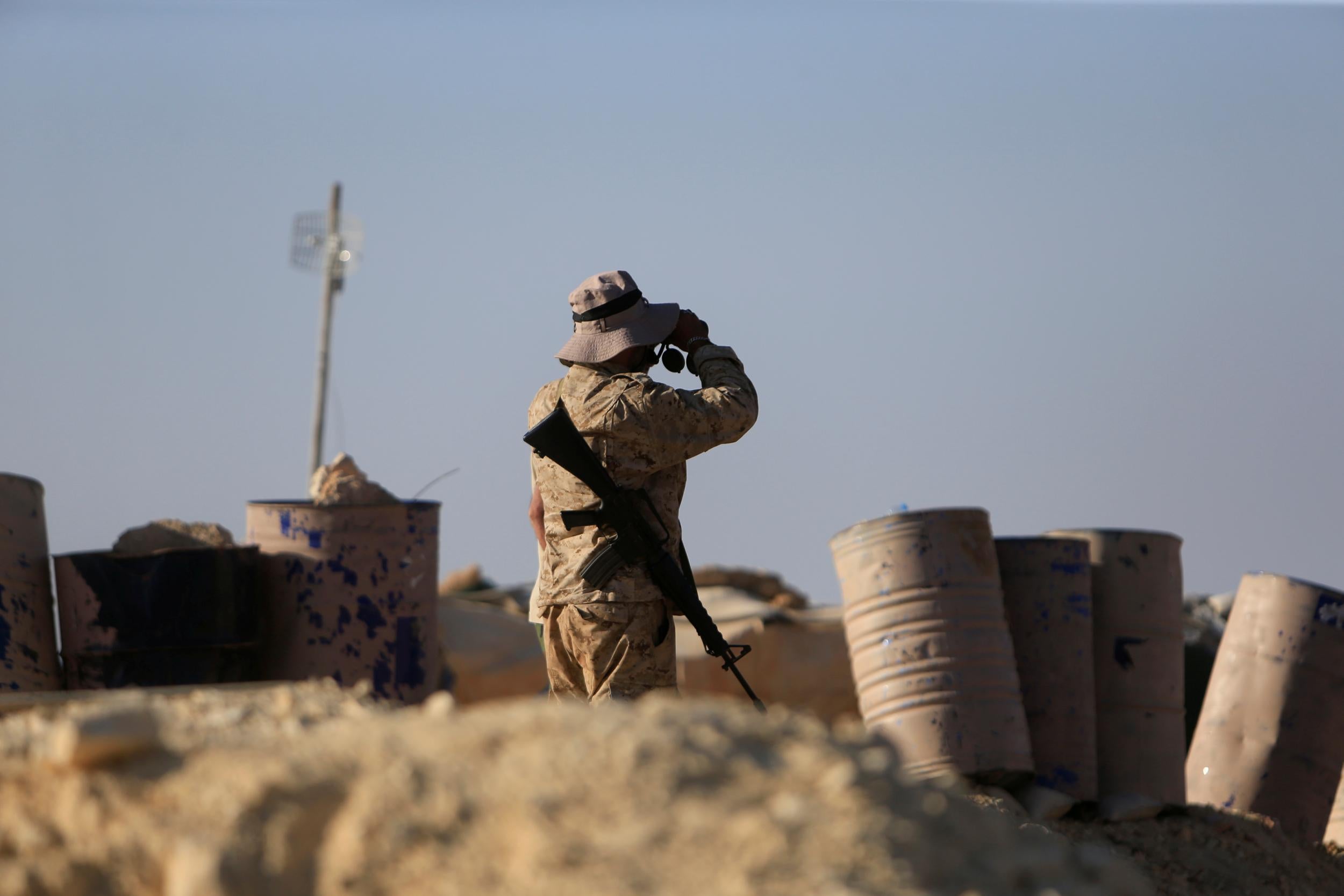Hezbollah and al-Qaeda agree prisoner swap as thousands of refugees return to Syria from Lebanon
Up to 9,000 refugees due to return home under local ceasefire in Lebanese militant group's offensive to drive Sunni militants from last border stronghold

Your support helps us to tell the story
From reproductive rights to climate change to Big Tech, The Independent is on the ground when the story is developing. Whether it's investigating the financials of Elon Musk's pro-Trump PAC or producing our latest documentary, 'The A Word', which shines a light on the American women fighting for reproductive rights, we know how important it is to parse out the facts from the messaging.
At such a critical moment in US history, we need reporters on the ground. Your donation allows us to keep sending journalists to speak to both sides of the story.
The Independent is trusted by Americans across the entire political spectrum. And unlike many other quality news outlets, we choose not to lock Americans out of our reporting and analysis with paywalls. We believe quality journalism should be available to everyone, paid for by those who can afford it.
Your support makes all the difference.Convoys of buses arrived on Monday to transfer thousands of Syrian militants and refugees from Lebanon's border region into rebel territory in Syria in exchange for Hezbollah prisoners.
Under a local ceasefire between the Sunni Muslim militants with links to al-Qaeda and the Shia Hezbollah, about 9,000 fighters and their relatives were to leave.
With no sign of any buses leaving, the departure was delayed to Tuesday from Monday for “logistical” reasons including having to wait for the rest of a total of 98 coaches to arrive from the Syrian side, a Hezbollah media unit said.
The deal includes the departure of all Nusra Front militants from Lebanon's border region around the town of Arsal, along with any civilians in nearby refugee camps who wish to go.
The truce echoes deals struck within Syria in which Damascus has shuttled rebels and civilians to Idlib province and other opposition areas. Such evacuations have helped President Bashar al-Assad recapture several rebel bastions over the past year.
Lebanon's Hezbollah has played a major role in fighting militants along the frontier during Syria's six-year war, sending thousands of combatants to support Assad's government.
Last week, Hezbollah took most of the mountainous zone of Jroud Arsal in a joint offensive with the Syrian army to drive Nusra militants from their last frontier foothold.
The Nusra Front was al-Qaeda's Syria branch until it severed ties and rebranded last year. It now spearheads the Tahrir al-Sham Islamist alliance in the Syrian war.
The Lebanese army, which receives considerable US and British military support, did not take an active part in the operation, setting up defensive positions around Arsal.
The next phase is expected to target a nearby enclave currently in the hands of Islamic State jihadists.
“Buses that will transport Nusra Front militants and their families have started arriving in Jroud Arsal,” the military media unit run by the Iran-backed Hezbollah said via social media on Monday.
The convoys rolled in from Syria and headed towards Lebanese army positions. Syrian Red Crescent ambulances arrived on the opposite side of the frontier, the media unit said.
Footage from the border zone showed dozens of white buses driving through the barren hills. The Lebanese Red Cross has taken part in logistics.
The first step of the ceasefire, brokered by Lebanon's internal security agency, unfolded on Sunday as the two sides exchanged the bodies of dead fighters.
A Lebanese security source said 200 militants with hundreds of their family members, as well as more than 5,000 refugees, were due to leave, mostly towards insurgent-held Idlib.
Nusra Front will release eight Hezbollah fighters under the deal, three captured in recent days and five held in Syria, a Lebanese security source said.
Hezbollah's al-Manar TV said the two sides would swap Nusra militants for the Hezbollah hostages near the city of Aleppo, which the Syrian government controls.
The UN refugee agency, not involved in the deal, was trying to reach refugees in the Arsal region to evaluate whether returns were voluntary, spokeswoman Lisa Abou Khaled said.
“UNHCR believes that conditions for refugees to return in safety and dignity are not yet in place in Syria,” she said, with war continuing across large swathes of the country.
The multi-sided Syrian conflict has killed hundreds of thousands of people and driven at least 11 million from their homes - about half Syria's pre-war population.
Nearly 1.5 million refugees have poured into Lebanon - around a quarter of its population - where most languish in severe poverty. Several thousand live in makeshift camps east of Arsal.
Reuters
Join our commenting forum
Join thought-provoking conversations, follow other Independent readers and see their replies
Comments